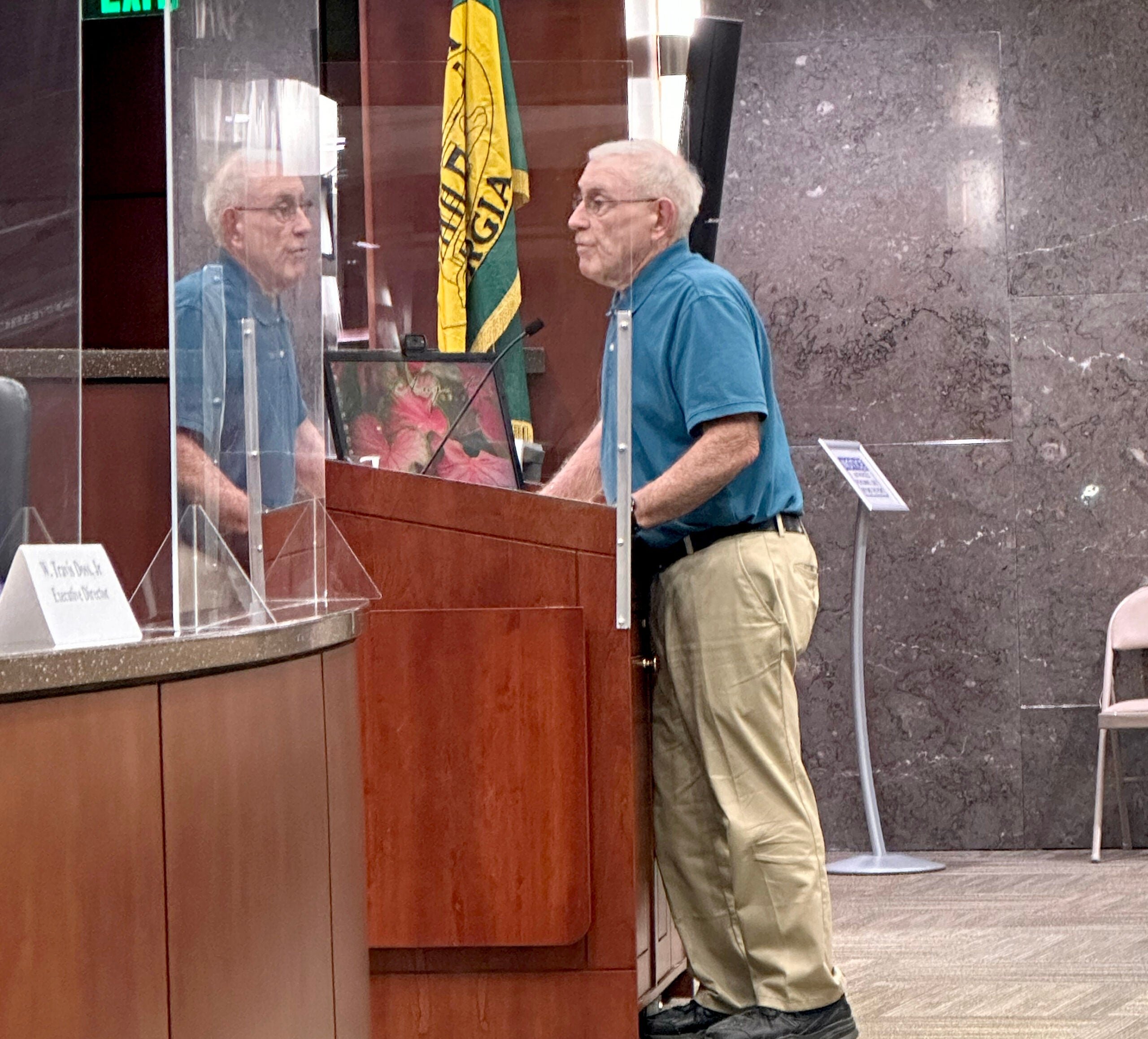Forty-seven potentially fraudulent voters will remain on the Richmond County voter rolls, for now.
The Board of Elections declined to take action Monday on a list compiled by retired educator David Miller with assistance from Eagle AI software.
Board Chairman Tim McFalls said Miller’s spreadsheet of voters registered in both Augusta and various Florida cities was inadequate evidence to the board to rescind their right to vote.
MORE: Keeping up with Lewis Blanchard
“What you’re asking is a very, very important action to take,” McFalls said. “A list is not your proof.”
Miller asked if screenshots from the secretary of state offices in Georgia and Florida would suffice. McFalls said it might.
Two years ago, Miller brought in screenshots of state voter lists showing 18 voters who were registered both in Richmond County and later in Texas. The board approved removing the names.
Georgia law permits any elector to challenge the registration of another elector, and registration in another state is cause for removal, but the onus is on the elector making the challenge to prove another voter is ineligible. The national organization “True the Vote” has organized citizen activists to scrutinize voting lists for inconsistencies.
Miller’s list targets the area’s large transient population. On it are numerous military, government and medical personnel. Among them, based on searches of government records and public profiles, are an engineer with Bechtel, two other engineers, a radiologist, an anesthesiologist, a rehabilitation physician and a freestyle calisthenics competitor. Another sold a $990,000 house in Augusta in 2020. Four on the list had Fort Eisenhower addresses, and 18 are members of couples that lived at the same address.
According to Miller’s list, all but one of the voters is inactive and last voted locally between 2015 and 2022, then registered in Florida between 2020 and 2023. Typically voters are placed in inactive status after they don’t participate in elections for four years.
As of Monday, two of the challenged voters had notified the state they had registered in another state, Elections Director Travis Doss said.
Voters who move out of state aren’t required to do that, however, and until Georgia’s system detects them, duplicate registrations are likely, Doss said.
The only way to remove oneself from the list is for a voter to send a signed copy of one’s new registration card, or return a mailer sent to the voter with confirmation a voter has moved, he said.
Miller was allowed to withdraw his challenges Monday with the understanding he will return with better evidence of his claims.
While it hasn’t gone into effect yet, Senate Bill 189 will make filing challenges even easier. Authored by Sen. Max Burns, R-Sylvania, one of two senators on Augusta’s legislative delegation, the bill removes limits on the type and number of challenges an elector or group can make.
It also allows voters to be removed from the rolls up to 45 days before an election, in defiance of federal law, which limits challenges to 90 days before an election.
Betty Perry, who supports the voter challenges, said the work was enabled by Evans doctor John W. “Rick” Richards, who designed Eagle AI software. Columbia County Board of Elections approved an agreement with the company, and some counties are using it to replace ERIC, the Electronic Registration Information Center, a multistate clearinghouse for voter data.
“People languishing on two different voter rolls is not good for this country,” Perry said.











